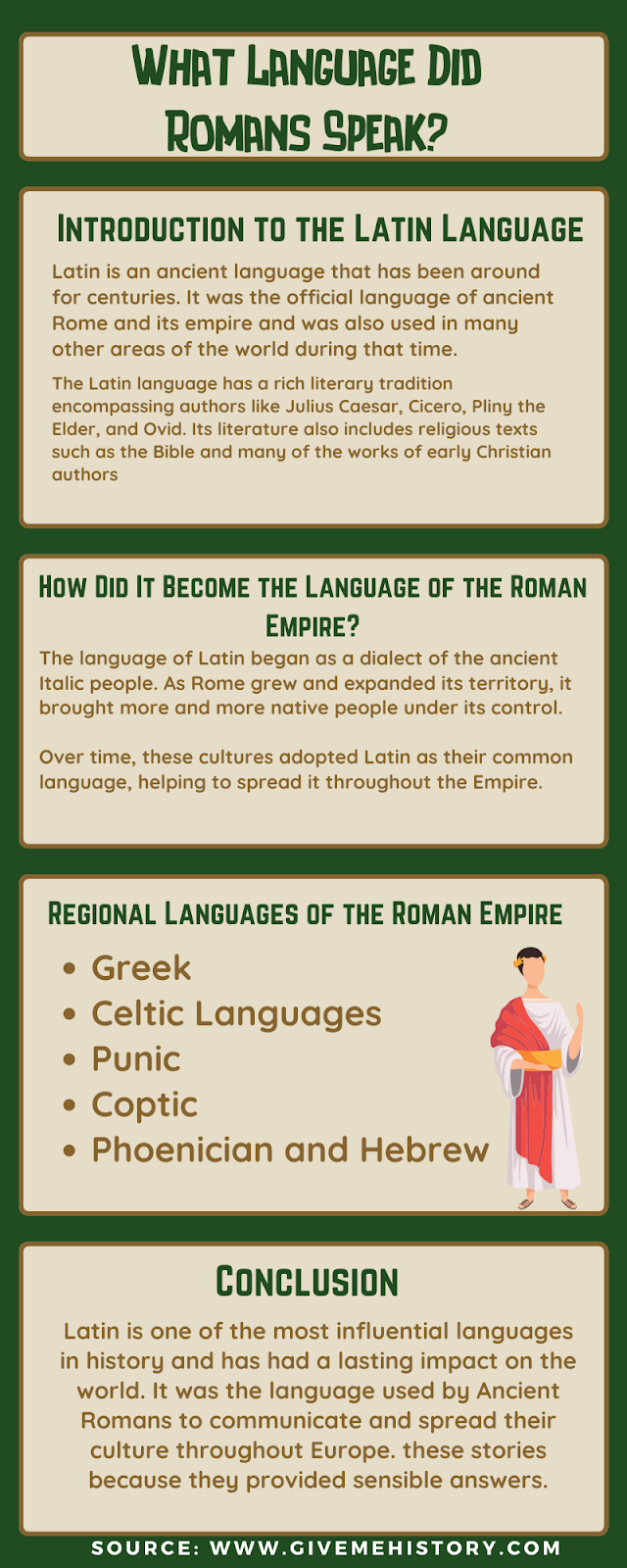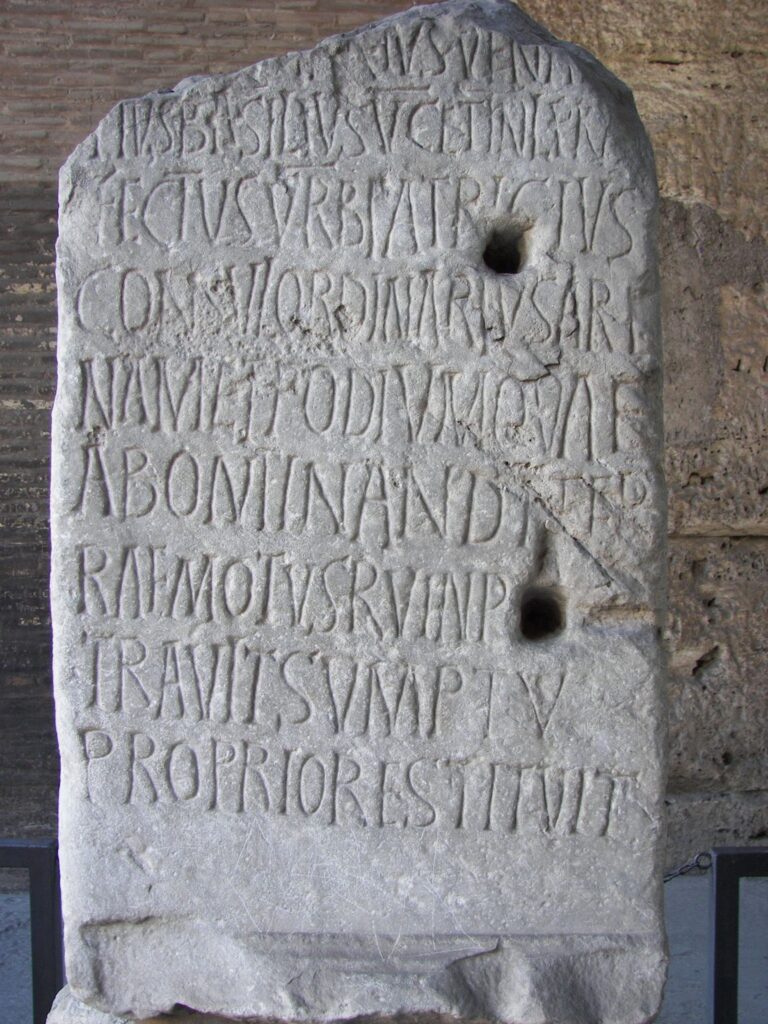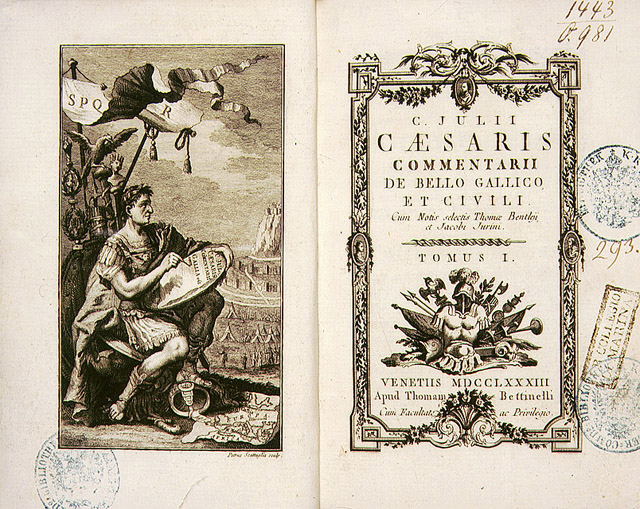古罗马人因许多事情而闻名:共和国的发展、伟大的工程壮举和令人印象深刻的军事征服。 但是,他们使用什么语言进行交流呢?
答案是拉丁语 这是一种意大利语,在中世纪和文艺复兴时期最终成为欧洲大部分地区的通用语言。
在本文中,我们将探讨拉丁语的起源,以及它是如何成为罗马帝国的语言的。 我们还将了解它是如何随着时间的推移而演变的,以及它对其他语言的持久影响。 那么,让我们深入了解一下罗马人的语言吧!

>;
拉丁语入门
拉丁语是一种古老的语言,已有几个世纪的历史。 它是古罗马及其帝国的官方语言,当时也在世界许多其他地区使用。
即使在罗马帝国灭亡后,拉丁语仍在许多领域继续使用,并仍被用作科学语言。 它也是包括英语在内的许多现代语言的主要来源。

罗马斗兽场碑文
Wknight94, CC BY-SA 3.0, via Wikimedia Commons
See_also: 古埃及力量符号及其含义 拉丁语主要分为三个时期:古典时期(公元前 75 年至公元 14 年)、后古典时期(公元 14 年至 900 年)和现代时期(公元 900 年至今)。 在每个时期,拉丁语的语法和句法都发生了变化,使用的词汇也发生了变化。
从法语、西班牙语、葡萄牙语和意大利语等许多后裔语言中,仍然可以看到它的影响。
拉丁语拥有丰富的文学传统,包括凯撒大帝、西塞罗、老普林尼和奥维德等作家的作品。 其文学作品还包括《圣经》等宗教文本和许多早期基督教作家的作品。
除了在文学中使用,拉丁语还被用于罗马法律,甚至医学文本。
拉丁语的句法和语法都很复杂,这也是现代人很难掌握它的原因。 不过,在书籍和网络资源的帮助下,今天学习拉丁语口语仍然是可能的。 学习拉丁语可以获得有关古罗马文化和历史的丰富知识,还可以增进对其他罗曼语言的理解。 无论您是想拉丁语绝对值得学习。
起源于罗马
拉丁语被认为起源于罗马周边地区,最早的使用记录可追溯到公元前 6 世纪。
在罗马帝国时期,拉丁语已成为居住在罗马的所有公民和移民的通用语言。
罗马人将他们的语言传遍了他们庞大的帝国,随着他们征服新的土地,拉丁语成为了西方世界的通用语言。
它是如何成为罗马帝国的语言的?
拉丁语最初是古意大利人的方言。 随着罗马的发展和领土的扩张,越来越多的当地人被罗马控制。
随着时间的推移,这些文化将拉丁语作为他们的共同语言,帮助将拉丁语传播到整个帝国。
最终,拉丁语成为整个帝国的政府、法律、文学、宗教和教育的官方语言。 这有助于将罗马不同的文化统一到一种语言之下,使远距离的交流变得更加容易。 此外,拉丁语的广泛使用使其成为在欧洲传播罗马文化和价值观的有力工具。

1783 年版的《高卢战记
图片来源:wikimedia.org
拉丁语对其他语言的影响
随着拉丁语在欧洲的传播,它也对其他语言和方言产生了重大影响。
拉丁语也对英语产生了影响,英语中的一些单词就是从这种古典语言中借用过来的。
罗马帝国的地区语言
尽管拉丁语被广泛接受,但它并不是罗马帝国唯一使用的语言,被征服并同化到罗马统治下的当地人仍在使用多种地区语言。
这些语言包括在东地中海许多地区广泛使用的希腊语、凯尔特语(如高卢语和爱尔兰语),以及帝国北部部落使用的日耳曼语(如哥特语)。
让我们来详细了解一下它们。
希腊文
东罗马帝国的许多公民也讲希腊语。 它通常被用作不同母语的人之间交流的中介语言。 整个地区的犹太人和非犹太人也讲阿拉米语,直到公元 5 世纪仍很流行。
生活在帝国边境地区的人们使用各种日耳曼语言,其中包括哥特语和伦巴第语,这两种语言在中世纪早期都已灭绝。
凯尔特语言
被罗马人征服的一些省份的居民使用凯尔特语,其中包括:
- 高卢语
- 威尔士语
- 加拉太语,主要在现在的土耳其境内使用
布匿语
北非的迦太基人曾使用布匿语,但在公元前 146 年被罗马打败后逐渐消失。
科普特
科普特语是古埃及语言的后裔,生活在埃及帝国境内的基督徒一直使用这种语言,直到公元 7 世纪才逐渐消失。
腓尼基和希伯来文
罗马人在扩张过程中还遇到了腓尼基人和希伯来人,罗马征服的一些地区的居民使用这些语言。
虽然拉丁语仍然是罗马帝国的官方语言,但这些不同的方言使罗马帝国的许多行省得以进行文化交流。
See_also: 凯撒大帝是皇帝吗? 结论
拉丁语是历史上最有影响力的语言之一,对世界产生了持久的影响。 古罗马人用它进行交流,并将其文化传播到整个欧洲。
尽管拉丁语已不再是罗马的语言,但其遗产仍将世代相传。
感谢您的阅读!

David Meyer
Jeremy Cruz, a passionate historian and educator, is the creative mind behind the captivating blog for history lovers, teachers, and their students. With a deep-rooted love for the past and an unwavering commitment to spreading historical knowledge, Jeremy has established himself as a trusted source of information and inspiration.Jeremy's journey into the world of history began during his childhood, as he avidly devoured every history book he could get his hands on. Fascinated by the stories of ancient civilizations, pivotal moments in time, and the individuals who shaped our world, he knew from an early age that he wanted to share this passion with others.After completing his formal education in history, Jeremy embarked on a teaching career that spanned over a decade. His commitment to fostering a love for history among his students was unwavering, and he continually sought innovative ways to engage and captivate young minds. Recognizing the potential of technology as a powerful educational tool, he turned his attention to the digital realm, creating his influential history blog.Jeremy's blog is a testament to his dedication to making history accessible and engaging for all. Through his eloquent writing, meticulous research, and vibrant storytelling, he breathes life into the events of the past, enabling readers to feel as if they are witnessing history unfold beforetheir eyes. Whether it's a rarely known anecdote, an in-depth analysis of a significant historical event, or an exploration of the lives of influential figures, his captivating narratives have garnered a dedicated following.Beyond his blog, Jeremy is also actively involved in various historical preservation efforts, working closely with museums and local historical societies to ensure the stories of our past are safeguarded for future generations. Known for his dynamic speaking engagements and workshops for fellow educators, he constantly strives to inspire others to delve deeper into the rich tapestry of history.Jeremy Cruz's blog serves as a testament to his unwavering commitment to making history accessible, engaging, and relevant in today's fast-paced world. With his uncanny ability to transport readers to the heart of historical moments, he continues to foster a love for the past among history enthusiasts, teachers, and their eager students alike.
 >;
>;  罗马斗兽场碑文
罗马斗兽场碑文  1783 年版的《高卢战记
1783 年版的《高卢战记 

